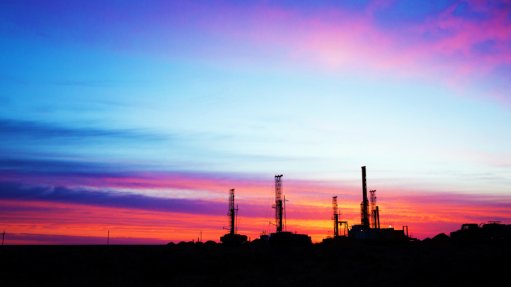
Since the height of the Cold War, the rules governing the safety and security of the global nuclear industry have been decided behind closed doors by a 35-member board that excludes some of the major players in the business. The world’s biggest uranium producer is trying to shake up the status quo.
Kazakhstan, which produces about two-fifths of the world’s uranium, says it’s tired of being treated like a second-class citizen at the International Atomic Energy Agency and is preparing to file a legal demand to make it eligible for a seat on the board, according to a statement dated Aug. 18 circulated among diplomats.
The Central Asian nation’s exclusion from the IAEA’s chief decision-making council is “deeply discouraging” and “leads to a violation of the fundamental principle of equality,” Kazakhstan said in the statement.
The IAEA board meets four times a year and is also responsible for electing leadership through a process that’s been compared to the secretive conclave of Catholic cardinals who select a new pope. Western countries that currently dominate the body tend to keep its focus on activities that could lead to nuclear weapons proliferation.
Kazakhstan, which hosts an IAEA nuclear fuel bank backed by billionaire Warren Buffett and pays millions of dollars in membership dues, is one of 17 countries excluded from the board. The former Soviet nation’s demands will be presented at the Vienna-based agency’s next general conference on Sept. 25, and it’s preparing a resolution to correct its disenfranchisement. The IAEA declined to comment.
Kazakhstan has tried but failed over the years to join the IAEA’s Eastern Europe, Middle East and the Far East regional groupings, which are legally authorized to decide who sits on the board of governors. Other former Soviet Central Asia countries Uzbekistan, Turkmenistan, Tajikistan and Kyrgystan are also precluded from the board, as are island nations including Bahrain, Fiji and Papua New Guinea. Arab states have denied Israel a place in the Middle East group.
“The issue is political,” said Gaukhar Mukhatzhanova, a director at the Vienna Center for Disarmament and Non-Proliferation. “Some states are not interested in admitting competitors that would be strong contenders for a board seat, as is the case with Kazakhstan.”
Kazakhstan’s motion potentially adds to the political turbulence faced by nuclear energy generators. Last month’s coup in Niger disrupted supply chains in another of the world’s top uranium producers, just as Western nations try to patch supply chain vulnerabilities exposed by Russia’s war in Ukraine.
With a rising focus on the tenuous links holding together nuclear-fuel supply chains, Kazakhstan’s demands are starting to gain traction among an unusual coalition. Russian diplomats said they’ve tried helping Kazakhstan in the past and are ready to do so again. And arch-foes Iran and the US have both come out in favor of a rule change that would give Astana’s government more rights.
“We applaud Kazakhstan’s persistent efforts to serve on the board and to draw attention to the unfair state of affairs,” US IAEA Ambassador Laura Holgate said in a statement. “Member States that do not currently belong to a regional group should be able to join a geographically appropriate group and have the opportunity to serve on the board.”